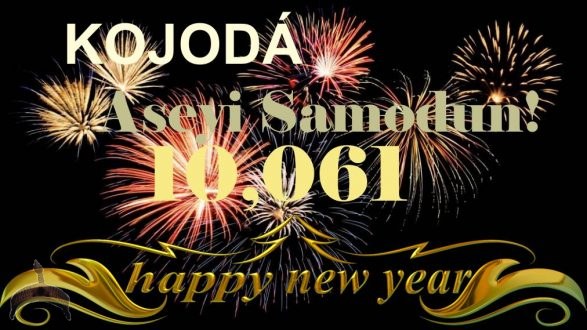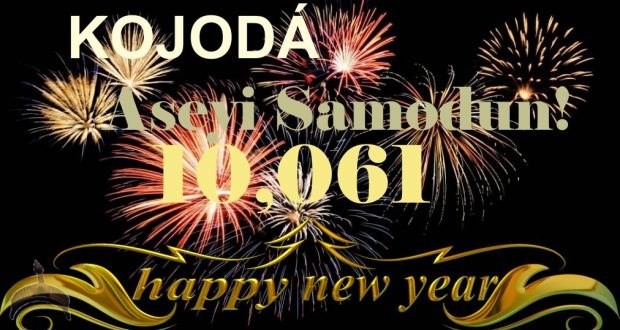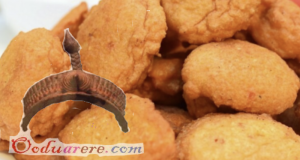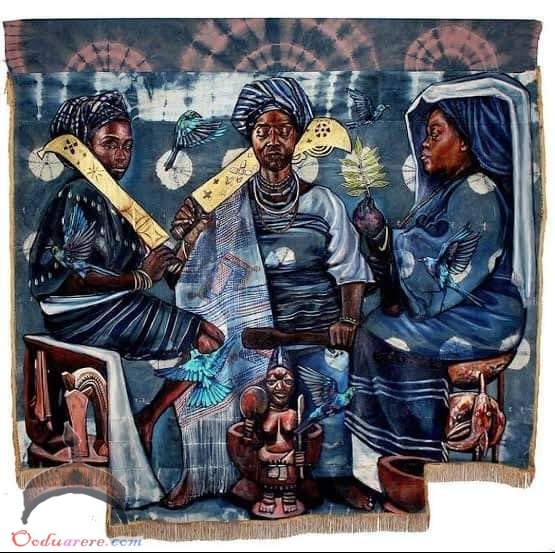KỌ́JỌ́DÁ” – ‘Ki ṓjṓ dá: Meaning; May The Day Be Clear or Foreseen; is the name of Yórúbà Calendar.
Akù Odùn Tìtún o! Eyìn Omo Yórubà nìlè lókó, léyín ódì!
It is 10,061 of the Yoruba Calendar (Kojoda, which means “May The Day Be Foreseen”). The New Year begins on June 3rd (Okodu 3) of the Gregorian Calendar.

This means, 10,061st year of recorded Yoruba history since the establishment of the calendar according to Scholars by Orunmila. However we used to have 4 days/week, but later reconciled it with the Gregorian calendar 7days/week (Note). Before the western gregorian calendar, Yorubas used a lunar calendar. The Yoruba year begins June 3 of this year to June 2nd the following year. The traditional calendar had a 4 day week, 7 week month, and 12 month year.
The Yoruba calendar (Kojoda) has a year beginning on the last moon of May or first moon of June of the Gregorian calendar, and an era of 8042 BC. The new year coincides with the Ifá festival.
It started about 10,061 years ago, when Ife-Oodaye was populated by the Orisa(s)/Orishas. It was the work of Orunmila and Obatala.
The traditional Yoruba week has four days. The four days that are dedicated to the Orisa go as follow:
Day 1 is dedicated to Obatala (Sopanna, Iyaami, and the Egungun)
Day 2 is dedicated to Orunmila (Esu, Ifá and Osun).
Day 3 is dedicated to Ogun (Osoosi).
Day 4 is dedicated to Sango (Oya)
To reconcile with the Gregorian calendar, Yoruba people also measure time in seven days a week and four weeks a month. The four-day calendar was dedicated to the Orisas and the seven-day calendar is for doing business.
The seven days are: Ojo-Aiku (Sunday), Ojo-Aje (Monday), Ojo-Ishegun (Tuesday), Ojo-Riru (Wednesday), Ojo-Bo/Alamisi (Thursday), Ojo-Eti (Friday) and Ojo-Abameta (Saturday). Oṡu in Yoruba calendar.
ÒKÙDÚ – June
AGḖMṐ – July
ÒGÚN – August
OWḖwḖ – September
ṐWAwa – October
BḔLU – November
ṐPḖ – December
ṠḔRḔ – January
ÈRÉLE – February
ḔRḔNA – March
IGBE – April
ḔBÍBÍ – May
Happy New Year! Aseyi samodun o!
 Ọmọ Oòduà Naija Gist | News From Nigeria | Entertainment gist Nigeria|Networking|News.. Visit for Nigeria breaking news , Nigerian Movies , Naija music , Jobs In Nigeria , Naija News , Nollywood, Gist and more
Ọmọ Oòduà Naija Gist | News From Nigeria | Entertainment gist Nigeria|Networking|News.. Visit for Nigeria breaking news , Nigerian Movies , Naija music , Jobs In Nigeria , Naija News , Nollywood, Gist and more









